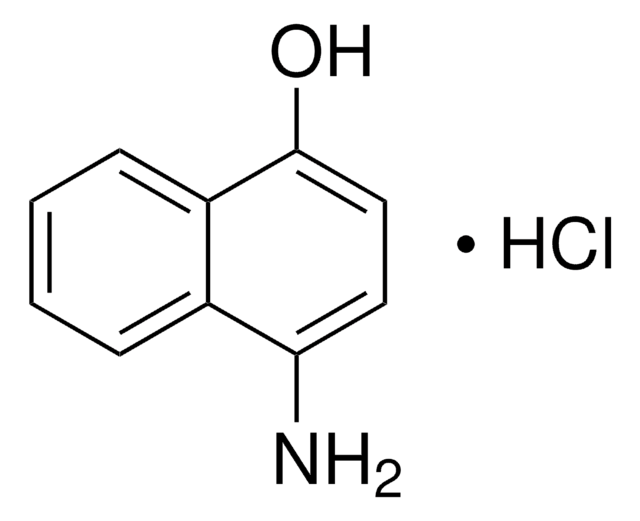185191
Lead(IV) acetate
reagent grade, 95%
Sinónimos:
Lead tetraacetate, Pb(acac)4
About This Item
Productos recomendados
grado
reagent grade
Nivel de calidad
Análisis
95%
formulario
crystalline powder
powder, crystals or chunks
idoneidad de la reacción
reagent type: catalyst
core: lead
temp. de almacenamiento
2-8°C
cadena SMILES
CC(=O)O[Pb](OC(C)=O)(OC(C)=O)OC(C)=O
InChI
1S/4C2H4O2.Pb/c4*1-2(3)4;/h4*1H3,(H,3,4);/q;;;;+4/p-4
Clave InChI
JEHCHYAKAXDFKV-UHFFFAOYSA-J
¿Está buscando productos similares? Visita Guía de comparación de productos
Descripción general
Aplicación
- unsaturated and aromatic hydrocarbons
- monohydroxylic and saturated alcohols
- nitrogen-containing compounds
- Aromatic primary amines to symmetrical azo compounds.
- Aliphatic primary amines to alkyl cyanides.
- Primary amides to carbamates.
- Hydrazones to azoacetates.
- 2-(Trimethylsiloxy) furans to α,β-unsaturated γ-acetoxy-γ-lactones.
- Aryl ethyl ketones to alkyl 2-arylpropanoates.
- Acetophenones to methyl aryl acetates.
Palabra de señalización
Danger
Frases de peligro
Consejos de prudencia
Clasificaciones de peligro
Acute Tox. 4 Inhalation - Acute Tox. 4 Oral - Aquatic Acute 1 - Aquatic Chronic 1 - Repr. 1A - STOT RE 2
Código de clase de almacenamiento
6.1C - Combustible acute toxic Cat.3 / toxic compounds or compounds which causing chronic effects
Clase de riesgo para el agua (WGK)
WGK 3
Punto de inflamabilidad (°F)
Not applicable
Punto de inflamabilidad (°C)
Not applicable
Certificados de análisis (COA)
Busque Certificados de análisis (COA) introduciendo el número de lote del producto. Los números de lote se encuentran en la etiqueta del producto después de las palabras «Lot» o «Batch»
¿Ya tiene este producto?
Encuentre la documentación para los productos que ha comprado recientemente en la Biblioteca de documentos.
Nuestro equipo de científicos tiene experiencia en todas las áreas de investigación: Ciencias de la vida, Ciencia de los materiales, Síntesis química, Cromatografía, Analítica y muchas otras.
Póngase en contacto con el Servicio técnico










